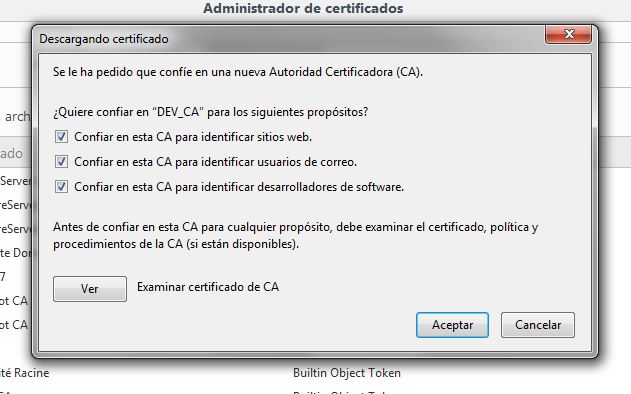important
To use Copy to generate authentic copies of paper originals, or to create signed copies with locally installed certificates, it is essential to run or open the native application each time you want to use it. Once open you can use the Copia application by accessing EACAT or the web component when using the service through integration.
- On November 23, 2017, the native application was updated to address some issues that had been detected with some "flatbed" or tabletop scanners (those without a sheet feeder).
- On July 11, 2018, the native app was updated to fix some issues with certain scanners that caused the CÒPIA app not to detect that the scan had completed and to hang permanently. With the new improvement, a button has been added that allows the user to end the digitization process when he sees fit. For this reason we recommend that you download the latest version of the native application.
- On July 5, 2019, a new update was made for the renewal of the certificate of the native application due to the expiration of the previous one on 08/27/2019. It will be necessary to update the application, after removing the old certificate from the Windows certificate store. In this sense, we detail below the steps to follow:
- Open the Windows console and access the certificate store by following the steps below:
- Select run from start menu, then type mmc . The MMC console appears.
- From the File menu, select Add or Remove Add-on . The corresponding window will appear.
- From the available add-on choose certificates , then select add .
- Look under "Trusted Certification Authorities" for the certificate 'DEV_CA' and delete it. Accept removal.
- Run the new native application and accept the installation of the new certificate.
- On December 9, 2020, the native Copia app was updated to allow:
- choose the tray or crystal feeder if the scanner incorporates both options.
- choose the scanner with which you want to make the copy in case the user has more than one connected to the computer.
- On May 15, 2024, the native application was updated to incorporate the following new features:
- Update Java version to 1.8.0_162
- Add parameters to the scanner.bat command to be able to specify the port from which the Copy is accessed, as well as to be able to specify an own server certificate.
Thus, the following parameters are now supported and in the following format:
-p <port> : Port number to use between 7000 and 65535
-d : Activate DEBUG mode of the Morena framework (JNI library that gives access to the scanner)
-ks : Path to the keystore that contains the server certificate to use
-kp : Password of the keystore
-ka : Alias of the certificate to be used in the keystore
-kk : Password of the certificate (for JKS type keystores, the P12 does not have one)
-kt : Type of keystore. Can be "JKS" or "PKCS12"
-jpda <port> : Enable Java JVM debugging
-jmx <port> : Enables the JMX instrumentation endpoints of the JVM the module is running on
Example:
"scanner -d -p 8001 -ks C:\certs\modul.p12 -kp 12345 -ka servercert -kk 12345 -kt PKCS12"
Technical requirements to use the native application
In order to establish the connection between the scanning device and the web application of the CÒPIA service, it is essential to install the following native application on the computer:
This native application acts as a bridge between the image acquisition hardware (scanner, camera) and the service web application.
The standards supported by this native application are:
- Windows
- WIA (Windows Image Acquisition)
- MAC OS X:
- ICA (Image Capture Application)
For more information you can consult: http://www.gnome.sk/Morena/morena.html
- Once you have downloaded the ZIP file of the native application (depending on your operating system) you must unzip and save the corresponding folder to a directory to which you have write permissions (for example, in C:\Users)
- To open the application, simply double-click the scanner.bat file
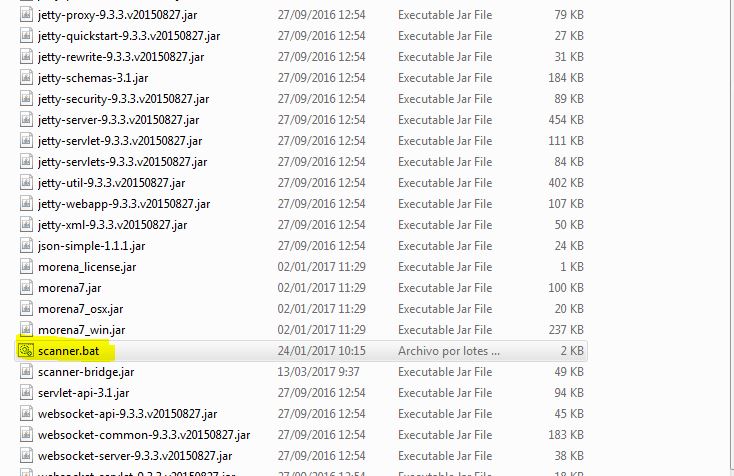
- A window will then open that will tell you, after a second, that the application has started successfully. The first time you run it, you'll be prompted to install a certificate in your computer's certificate store. Just click Yes.
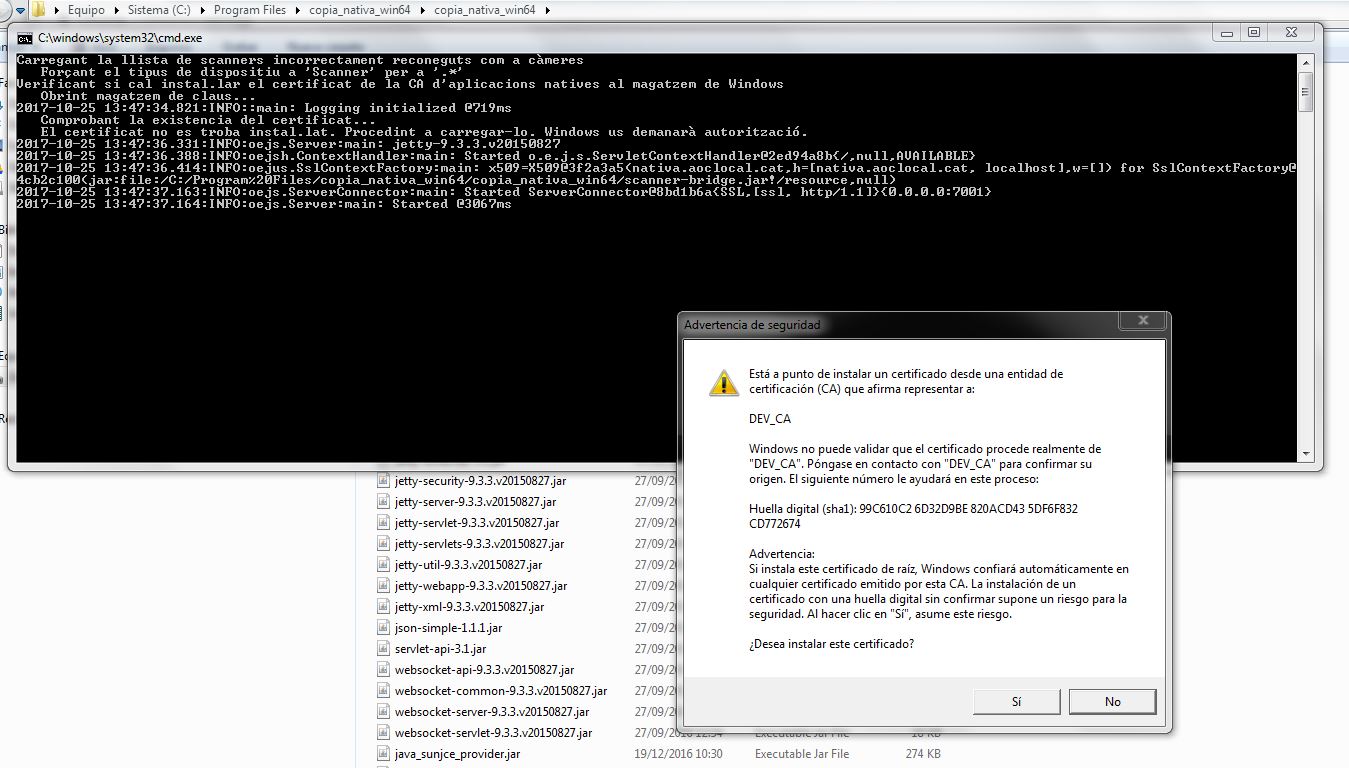

- After a few seconds, an icon will appear on your desktop bar indicating that the native application is working properly.

- If you want to stop the native application, just right-click and click on the following tooltip:

In order to establish the connection between the scanning device and the web application of the CÒPIA service, it is essential to install the following native application on the computer:
This native application acts as a bridge between the image acquisition hardware (scanner, camera) and the service web application.
The standards supported by this native application are:
- Windows
- WIA (Windows Image Acquisition)
- MAC OS X:
- ICA (Image Capture Application)
For more information you can consult: http://www.gnome.sk/Morena/morena.html
- Once you have downloaded the ZIP file of the native application (depending on your operating system) you must unzip and save the corresponding folder to a directory to which you have write permissions (for example, in C:\Users)
- To open the application, simply double-click the scanner.bat file

- A window will then open that will tell you, after a second, that the application has started successfully. The first time you run it, you'll be prompted to install a certificate in your computer's certificate store. Just click Yes.


- After a few seconds, an icon will appear on your desktop bar indicating that the native application is working properly.

- If you want to stop the native application, just right-click and click on the following tooltip:

Certificate public key installation
For those users using Chrome or Edge browser, there is no need to do this step as the app certificate public key installation is automatically installed when the native app is installed.
If you want to use the Firefox browser, before installing the native application, you must load the public key of the following digital certificate into the certificate store of your computer so that the communication between the application and the server is secure:
Open a Firefox browser window and go to “ Herramientas/Opciones/Advanced/Certificado/Ver certificados ”
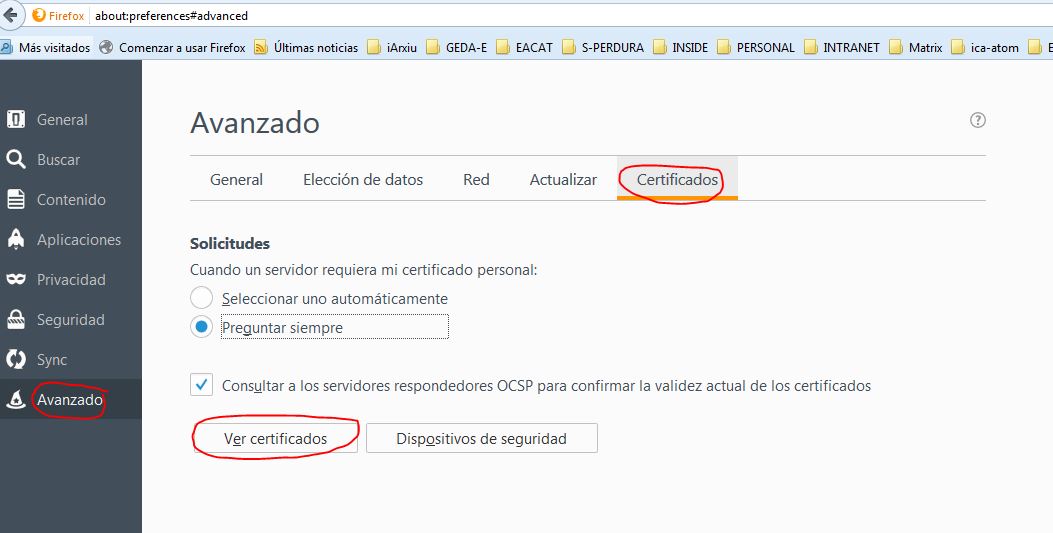
Select the "Authorities" tab and press the "Import" button.
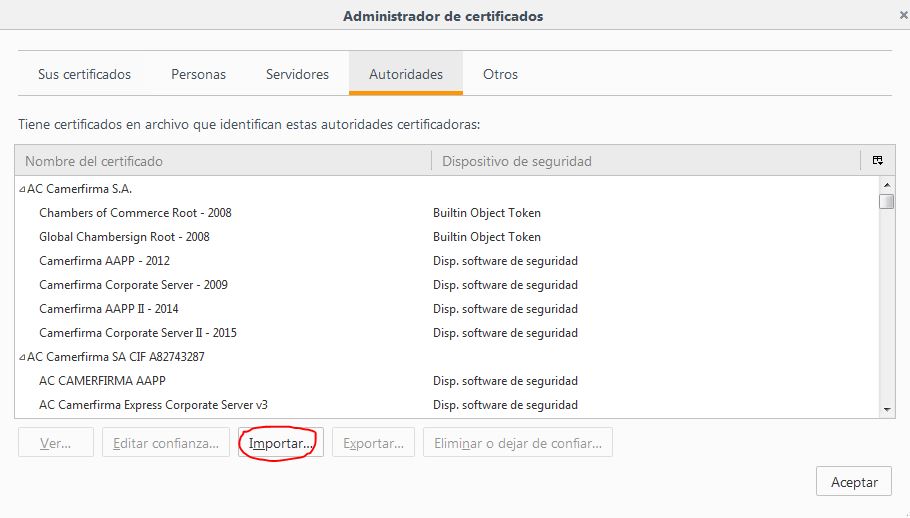
In the dialog box, indicate the location of the PC where you downloaded the .cer file that contains the public part of the digital certificate to be installed. Once selected, press the "Open" button.
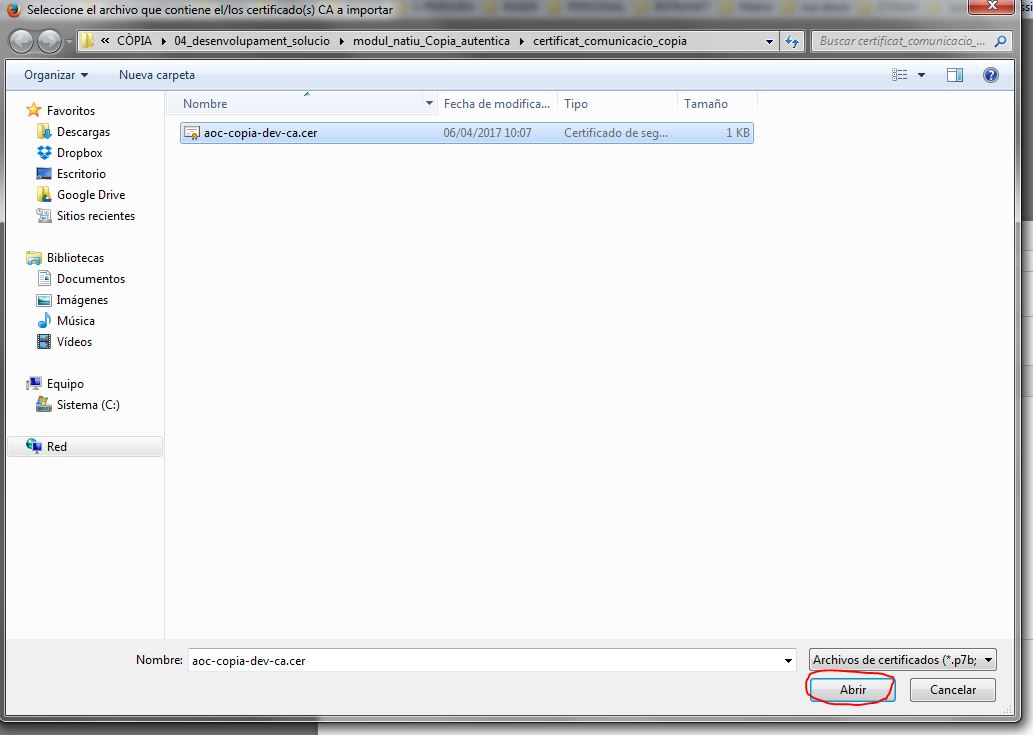
On the next screen, check all the trust options and click "OK" to install the certificate.
